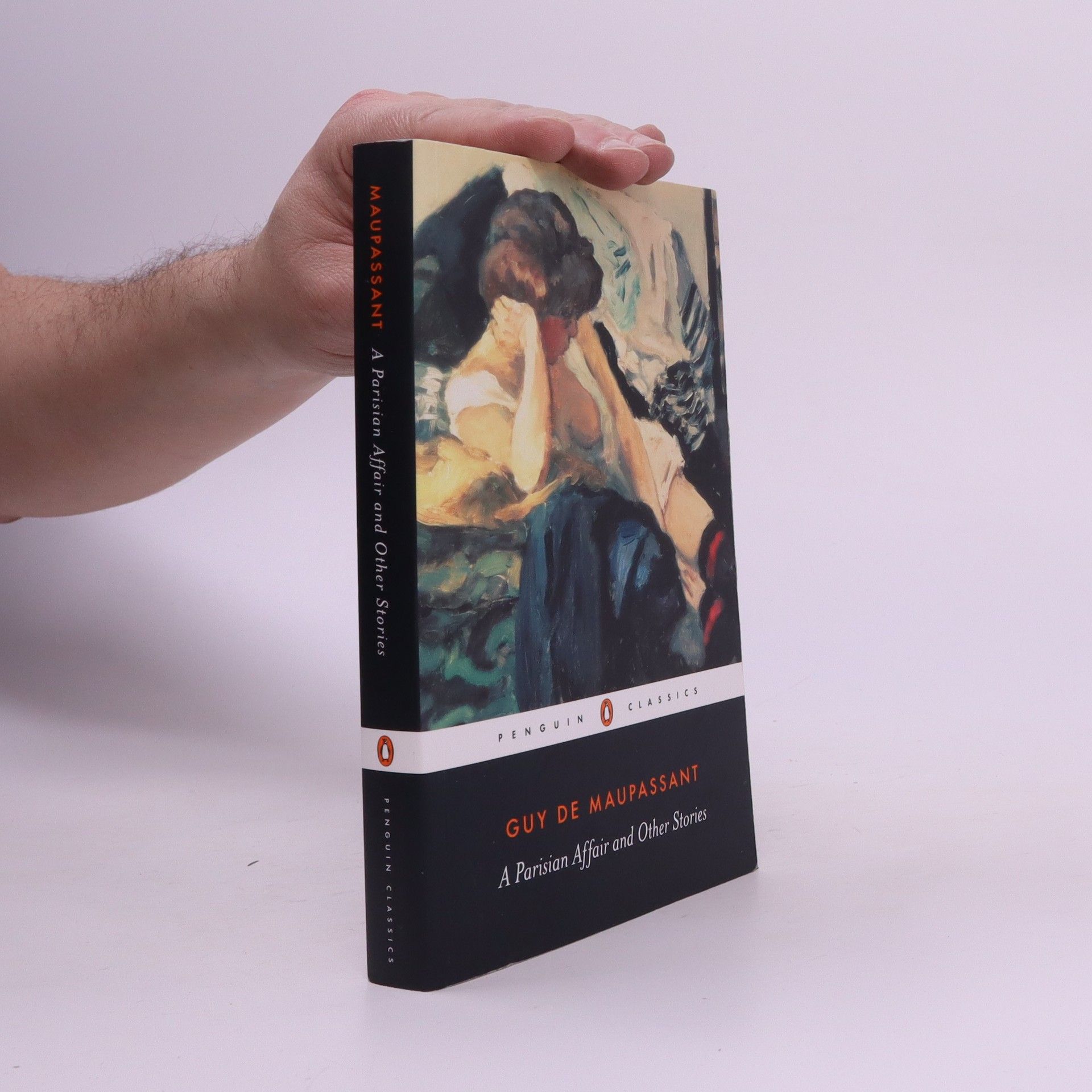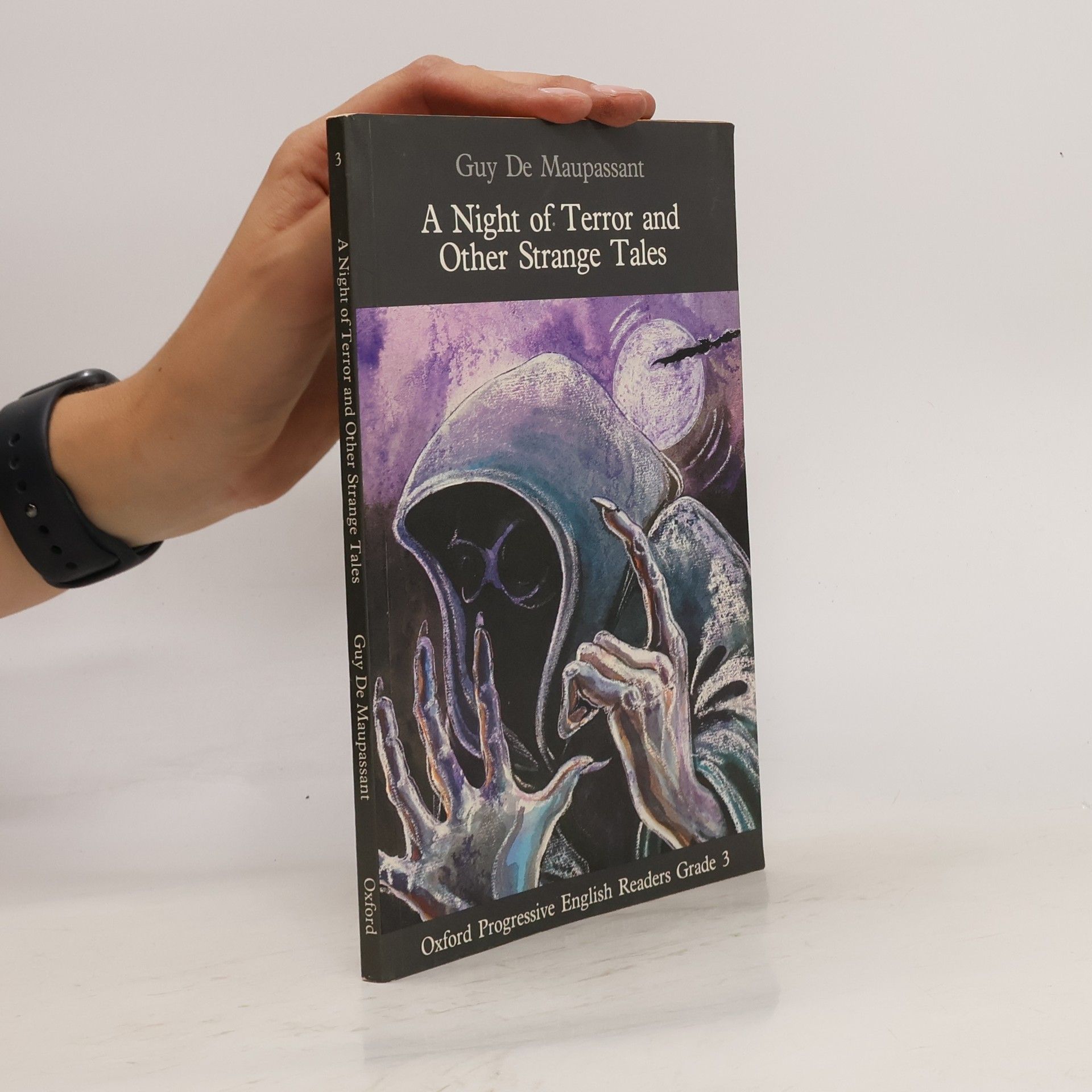Featuring a curated collection of exceptional short stories, this beautiful hardcover edition showcases the literary genius of one of the greatest writers in the genre. The selection highlights the author's unique storytelling style and profound insights into the human experience, making it a must-have for literature enthusiasts and fans of short fiction alike.
Guy de Maupassant Books
Guy de Maupassant was a pivotal figure in 19th-century French literature, recognized as one of the fathers of the modern short story. Under the tutelage of Gustave Flaubert, Maupassant's works are defined by their economy of style and masterful, effortless denouements. His stories frequently explore the futility of war and the innocent civilians caught within its destructive path, many set during the Franco-Prussian War. Maupassant's legacy lies in his profound ability to capture the complexities of human experience through concise and insightful narratives.







The Complete Novels of Guy de Maupassant
- 782 pages
- 28 hours of reading
The collection showcases Guy de Maupassant's mastery of French realism through a variety of themes and narratives. "Bel-Ami" explores a journalist's manipulative ascent, while "Our Hearts" and "Une Vie" delve into love and betrayal. "Pierre and Jean" tackles sibling rivalry, and "Mont Oriol" critiques the exploitation of a spa town. "Strong as Death" reflects on the consuming nature of love, and "Doctor Heraclius Gloss" ventures into philosophical and surreal realms. Maupassant's sharp societal observations resonate throughout this diverse anthology.
Ghost Stories
- 304 pages
- 11 hours of reading
Selected Stories
- 408 pages
- 15 hours of reading
The collection features over 300 stories by Maupassant, showcasing his mastery of psychological realism. Key themes include human emotions such as love, revenge, and madness, with settings that span from Normandy to North Africa and India. Notable tales like "Boule de Suif" and "The Necklace" exemplify his ability to capture complex experiences in concise narratives. Marjorie Laurie's enduring translations from the 1920s enhance the accessibility of Maupassant's work, ensuring its continued appeal across generations.
Mademoiselle Perle and Other Stories (riverrun editions)
- 320 pages
- 12 hours of reading
A brand new selection of Maupassant's finest stories, including an original preface by Joseph Conrad.
Le Port / The Port (with free audio download link)
- 86 pages
- 4 hours of reading
Reading sample: https: //easyoriginal.com/sample/EF6.pdf Innovative Reading Method: https: //easyoriginal.com/en/reading-method/ "Le Port" ("The Port") is a short story by French writer Guy de Maupassant. Maupassant was a 19th-century French author, remembered as a master of the short story form, and as a representative of the Naturalist school. Unabridged original text. Bilingual book French-English. Fun with reading original versions, starting as a beginner from level A2 and people re-entering the learning process. Innovative Ilya Frank's Reading Method. Learning, refreshing and perfecting foreign languages by having fun reading. Efficient and effortless expansion of vocabulary thanks to the innovative reading method. It takes no effort to read the original version and no dictionary is required to understand every word precisely. In passing, you learn vocabulary and repeat/improve grammar. Thanks to the integrated audio books, listening comprehension is also trained.
This handsome anthology brings together 60 of the greatest ghost stories ever written, presented in a jacketed hardback with beautifully gothic endpaper illustrations.Featuring silent spectres, petrifying phantoms and all manner of ghastly ghosts, these tales will terrify and entertain in equal measure. Whether the apparitions are discovered by intrepid adventurers, solemn priests or mild-mannered academics, the haunted must reconsider their most basic assumptions and work out how best to respond to these supernatural assaults.Tales • A Ghost by Guy de Maupassant• The Red Room by H. G. Wells• The Signalman by Charles Dickens• The Room in the Tower by E.F. Benson• The Whistling Room by William Hope Hodgson• The Stalls of Barchester Cathedral by M.R. James• Strange Event in the Life of Schalken the Painter by Joseph Sheridan Le FanuThese uncanny tales will haunt you long after the book is closed...ABOUT THE Arcturus Retro Classics are beautiful hardcover collections which bring together the best short stories from across the science fiction, fantasy and horror genres. With striking retro cover designs and illustrated endpapers by Tithi Luadthong, these editions make wonderful collectibles for your home library.
Selected short stories
- 240 pages
- 9 hours of reading
A selection of short stories by Guy de Maupassant which includes Boule de Suif, The Minuet, Madame Husson's May King, A Vendetta, A Deal, The Model, The Olive Grove, Rose, At Sea, The Capture of Walter Schaffs and The Piece of String.
Set in the Paris of society women, prostitutes and small-minded bourgeousie, and the isolated villages of rural Normandy that de Maupassant knew as a child, the thirty-three tales in this volume are among the most darkly humorous and brilliant short stories in nineteenth-century literature. They focus on the relationships between men and women, as in the poignant fantasy of 'A Parisian Affair', between brothers and sisters, and between masters and servants. Through these relationships, Maupassant explores the dualistic nature of the human character and his stories reveal both nobility, civility and generosity, and, in stories such as 'At Sea' and 'Boule de Suif', vanity, greed and hypocrisy. Maupassant's stories repeatedly lay humanity bare with deft wit and devastating honesty.
A Night of Terror and Other Strange Tales
- 106 pages
- 4 hours of reading
This is one of a series of both classics and modern fiction rewritten for "learners of English." Includes questions for students


